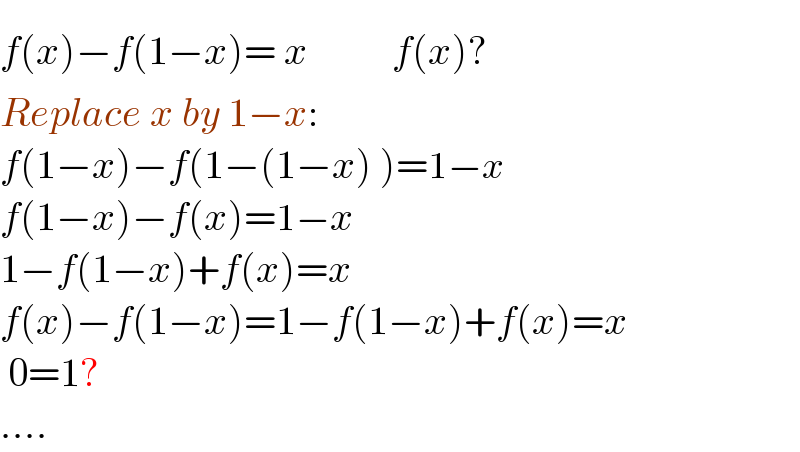Question Number 176083 by Linton last updated on 11/Sep/22

Answered by Rasheed.Sindhi last updated on 11/Sep/22

Answered by Rasheed.Sindhi last updated on 12/Sep/22

Commented by mr W last updated on 12/Sep/22

Commented by Rasheed.Sindhi last updated on 12/Sep/22

